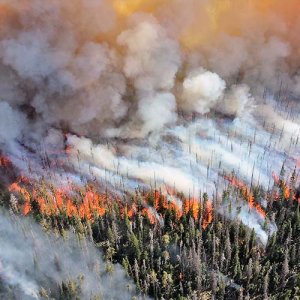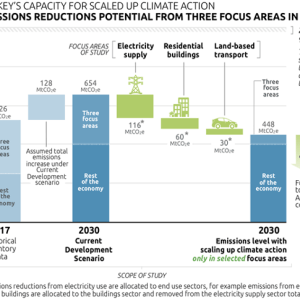The Russian attack on Ukraine has been devastating on both a humanitarian and economic level. Yet, the way in which it has highlighted the EU’s reliance on Russian gas seems like it may have positive climate implications. More than a third of the EU’s gas supply came from Russia before the beginning of the crisis,...
Year: 2022
The Effect of the Russian Invasion of Ukraine on China’s Climate Policy and Practices
The relationship between China and Russia has been under scrutiny by many since Russia marched its army into Ukraine some weeks ago. China appears to be standing with Russia against much criticism from many in the global community. Russia speaks of reinforced friendship and strong relationships between the two countries. At first glance, this may...
The Effect of the Russian Invasion of Ukraine on Canada’s Climate Policy and Practices
Canada has been a strong voice in an elicited international outcry to this injustice. Our energy policy and practices to date have been limited although the Canadian government announced on February 28, 2022 a ban on Russian oil imports to Canada. As a negative, Canada expects to receive both a domestic and international push to...
Ukraine Crisis Impacts the Prices of Oil, Gas, and Fertilizer in Brazil
In Brazil we observe 3 important impacts of the Ukraine crisis. The first impact is the increase in the price of a barrel of oil, directly putting pressure on the price of fuel and the entire production chain that depends on vehicles powered by diesel or gasoline. The second impact is on the future use...
United States: Climate Progress Report
HIGHLIGHTS – Clean Versus Fossil Energy Consumption (Monthly) – Carbon Dioxide Emission from Energy Consumption (Annually) – Wildfire Year-to-Date Statistics (Annually) Clean vs. fossil energy consumption Source: EIA monthly energy review, Topic 1.3, “Primary energy consumption by source” The U.S. Energy Information Administration (EIA) updates its analysis of U.S. energy trends monthly, including comparisons...
Global Spotlight Report #49: Climate Progress Reports
Introduction The goals for countries to reduce greenhouse gas emissions by 50% by 2030 and become carbon neutral by 2050 have been endorsed by the Inter-Governmental Panel on Climate Change (IPCC) and by UNFCCC. And yet there is a lack of agreement on how to measure this progress and what indicators to use. This is...
United Kingdom: Climate Progress Report
1. UK Renewable Electricity Generation (GWh) (Type 1*, ESI*) This indicator is extremely reliable as it measures the total renewable energy generated in the UK regularly and it takes all forms of renewable energy into account. This indicator allows the UK government to see how easy, quick, and cheap it is to produce renewable energy...
Turkey: Climate Progress Report
Turkey would need to reduce its emissions to below 365 MtCO2 by 2030 and to below 226 MtCO2 by 2050 to be within its emissions allowances under a ‘fair-share’ range compatible with global 1.5°C. Turkey’s intended 2030 national emissions reduction target is to reduce emissions 21% below what it calls a business-as-usual scenario, equivalent to...
South Korea: Climate Progress Report
Indicator 1: Renewable Energy (Monthly) This indicator will track the share of renewables in South Korea’s Energy Mix. It is reliable as it is updated on a regular basis and provides an insight into the evolving share of renewables in the country’s Energy Mix. The potential of renewable energy to reduce greenhouse gas emissions is...
South Africa: Climate Progress Report
Carbon Dioxide Emissions from Eskom (Monthly and Annually) Eskom, the South African electricity public utility, is the largest GHG emitter on the African continent [1]. Thus, in order to measure the progress that South Africa is making in terms of reducing its emissions by 2050, it is crucial to monitor Eskom’s emissions. Eskom regularly publishes...










